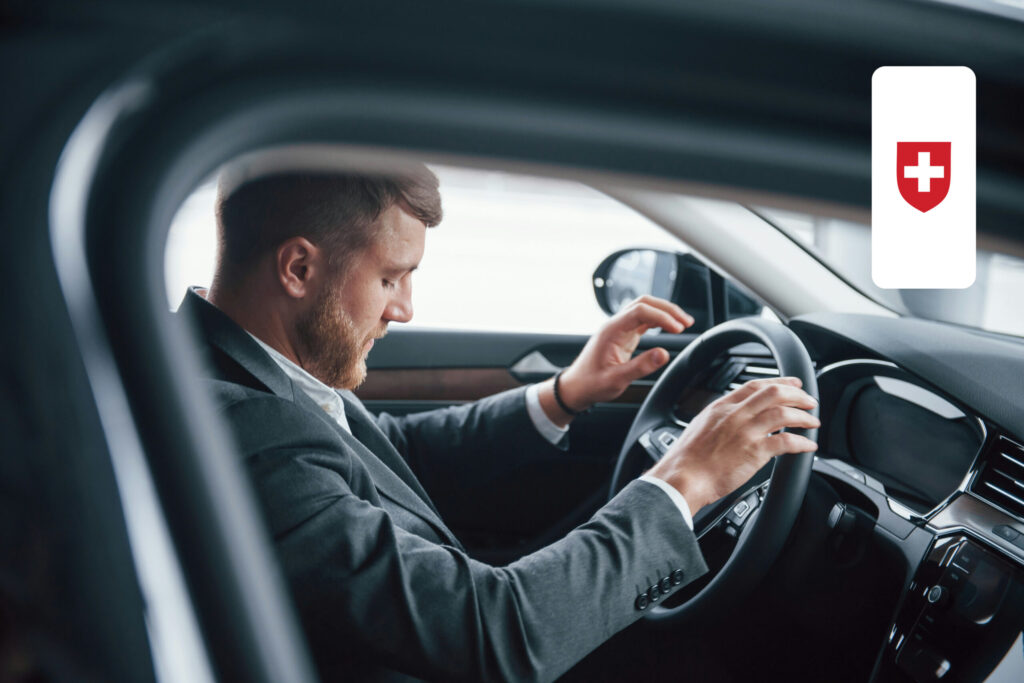
Digital Transformation in the Automotive Sector

In recent years, digital transformation has had a strong impact on all industries, including the automotive sector, helping companies build strong brand loyalty.
The history of the automotive industry began in 1886 with the invention of the first automobile by Karl Benz, which revolutionised society and the world economy over the following decades.
Today, the industry continues to grow, with millions of new cars sold every year, but it has faced many challenges, mainly due to the pandemic, which has led to a decrease in sales compared to 2019, although still increasing compared to 2020.
The automotive industry has become a pillar of the global economy, employing millions of people worldwide. If the automotive industry were a state, it would constitute the sixth largest economy in the world. Its strategic importance and symbolic value, as well as its history, make it an industry of considerable importance.
However, it is important to emphasise that the automotive industry is undergoing an unprecedented transformation, driven by digital transformation and an increasing focus on environmental sustainability, as well as alternative fuels.
These changes are shaping the future and opening up new opportunities for innovation and development. The digital shift is one of the main driving forces behind this change, enabling new ways of interacting with customers, improving marketing and customer service and enabling new business models.
Environmental sustainability is another crucial factor that is driving the automotive sector towards more eco-friendly solutions, such as alternative fuels to fossil fuels.
In this article, we focus in more detail on digital transformation in the automotive sector by analysing how it is changing vehicle sales processes and how it can help increase customer loyalty.
Before we begin, however, let us recall that, through automotive e-commerce, it is possible to offer vehicles for sale from different European countries. In order to allow your customers to drive legally around Europe without any time limits, however, you must provide them with a certificate of conformity. EUROCOC is a specialised portal that offers this document, simplifying the registration process and ensuring compliance with Italian regulations.

What is digital transformation?
Digital transformation is a process of organisational, economic and social change driven by the adoption and development of digital technologies. This transformation involves the redesign of business processes, the introduction of automation through Robotic Process Automation (RPA) and the development of new technological solutions.
Digital transformation involves all aspects of business and requires a significant cultural change. It is an ever-evolving phenomenon that allows companies to adapt and make the most of the opportunities offered by various digital technologies with the aim of improving operational efficiency, customer experience and creating new business models.
What are the pillars of digital transformation?
Digital transformation is a complex process that requires not only the adoption of new technologies, but also a radical change in business processes and organisational culture.
This process is based on three fundamental pillars: people, processes and technology.
People
In the transformation process, the focus is always on people. Without their active involvement and willingness to change, any attempt at digital improvement would be doomed to failure.
This requires adequate training to ensure that all employees have the necessary skills to use new technologies effectively. Furthermore, it is essential to create a corporate culture that encourages innovation and experimentation.
Processes
Digital transformation involves not only the integration of new technologies, but also the reorganisation of business processes. This may include automating repetitive tasks, using analytics to make data-driven decisions, or creating new digital business models. Processes must be designed in such a way that the full potential of new technologies can be exploited.
Technology
Finally, technology is the engine that powers digital transformation. However, the adoption of technology per se is not enough. Technologies must, in fact, be selected and implemented strategically, taking into account the organisation’s specific needs and long-term business objectives.
Without a well-articulated change management strategy, organisations may face significant resistance in making the transition from analogue to digital operations. Change management helps overcome these difficulties by creating a clear vision of the future, effectively communicating the benefits to be gained from this innovation, and providing the necessary support to help employees make the transition.
Digital transformation in the automotive sector
Digital transformation has been a general revolution triggered by digital technologies that has affected every aspect of society, including the automotive sector.
The main breaking point is the role of the consumer, who has become the centre of business. Individuals are now considered prosumers, with unique needs and demands for increasingly digital experiences.
Customers expect a connectivity experience and personalised customer service as well as 24/7 availability. Automotive companies are adapting production processes, marketing and customer service to meet these new demands.
How to Increase Brand Loyalty in the Automotive Industry?
Digital has a significant and wide-ranging influence in the automotive industry. Let’s see, therefore, how technology can be harnessed to increase customer brand loyalty.
The transformation of the car from property to service: an unprecedented revolution?
The first point concerns a potentially revolutionary trend: the shift of the car from an asset to be owned to a service to be enjoyed, known as Mobility as a Service (MaaS).
This paradigm has already occurred in other industries thanks to the digital transformation, such as in the music industry with streaming and on-demand listening instead of buying CDs or vinyls, and in the film industry with the shift to streaming viewing. The same is happening in other areas, such as software and storage systems.
Analysts believe that the automotive sector could be caught up in this wave, as demonstrated by ride-sharing services such as Uber and car-sharing services, which are increasingly present in cities and also growing with electric vehicles. This future is rapidly becoming a reality, and the dynamics are increasingly interconnected with digital.
The growing interconnectedness of cars
A crucial investment area for building strong brand loyalty in the automotive industry is the enhancement of connectivity systems inside cars.
Furthermore, the use of data, such as Big Data and Smart Data, and the Internet of Things (IoT) play a significant role in this digital transformation.
The automotive sector is therefore called upon to understand and exploit these opportunities in order to meet the challenges of the future.
This digitisation involves navigation, safety, emergency management, multimedia entertainment and maintenance, including predictive approaches. This will revolutionise the way we interact with our cars, decisively transforming the driving experience.
This technological advancement leads to integrated digital solutions personalised for each driver, going beyond traditional vehicle ranges designed specifically for specific targets.
Personalisation will, in fact, play a key role in customer loyalty, as analysed later in the fourth point.
Customer Service: The growing role of digital marketing
Although there are many trends in the automotive industry related to digital marketing, it is Customer Service that is becoming increasingly central. Data show that 54% of customers are willing to buy a car from a dealer who offers them an excellent experience, even if the prices are not the lowest.
Furthermore, 56% of dealers would be inclined to increase their vehicle purchases from the manufacturer if the process were faster and simplified. Overall, it is estimated that car sales could increase by 25% if the buying experience improved.
According to Capgemini, only 10% of dissatisfied customers will return to the same dealership for their next purchase, while 87% of highly satisfied customers will buy cars of the same brand and 85% will buy them from the same dealership.
The solution to improve customer service is, therefore, digital: track and interpret the customer journey, analyse Big Data and segment the audience for personalised communications.
Focus on personalisation as a key strategy
If the key objectives of the automotive industry are engagement, loyalty and the transformation of consumers into prosumers, personalisation is the key to achieving them. The ability to address individual customers, establishing a genuine one-to-one dialogue, is made possible by advanced digital transformation technologies.
Many specialised companies already offer data-driven and customer-oriented solutions for marketing and customer service in the automotive sector.
Personalisation has to be applied in all areas, involving both brands and retailers. This includes on-board technology and connectivity, as well as marketing strategies, customer service and up-sell and cross-sell opportunities.
Cyber security: protection against digital threats
The automotive industry is one of the most data-rich industries in the world. New ‘smart’ vehicles collect a vast amount of data, including data from drivers, roads, traffic patterns, component usage and wear, service and maintenance, and much more. Moreover, self-driving cars are expected to lead to further developments in this field.
Security and the proper and compliant handling of this enormous amount of data therefore become of paramount importance and require the utmost attention. With such a large amount of sensitive and sensitive information, it is essential to take appropriate measures with the aim of protecting privacy and ensuring that the data is handled securely and in compliance with current regulations.
Conclusion
Digital transformation has radically changed the automotive sector, introducing connectivity, personalisation and new business opportunities. The industry must, therefore, adapt to new consumer needs and continue to innovate in order to remain competitive within the market. Digital transformation will continue to drive the evolution of the automotive industry for the foreseeable future.










